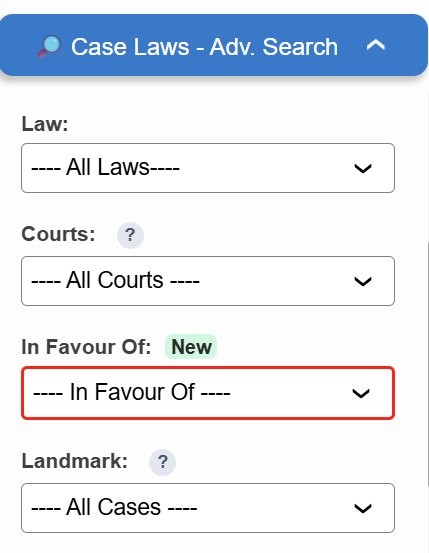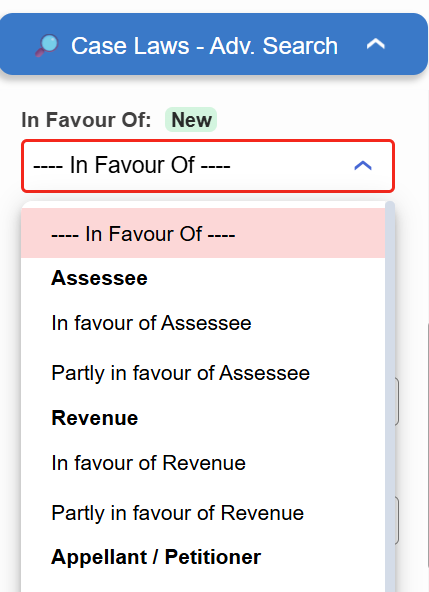Introducing the “In Favour Of” filter in Case Laws.
- ⚖️ Instantly identify judgments decided in favour of the Assessee, Revenue, or Appellant
- 🔍 Narrow down results with higher precision
Try it now in Case Laws →


Just a moment...
Introducing the “In Favour Of” filter in Case Laws.
Try it now in Case Laws →


Press 'Enter' to add multiple search terms. Rules for Better Search
No Folders have been created
Are you sure you want to delete "My most important" ?
NOTE:
Don't have an account? Register Here
<h1>Tribunal rules no duty credit reversal for waste products in manufacturing</h1> The Tribunal allowed the appeal, setting aside the demand for 8% on the sale price of Bio-earth/Bio-compost manufactured using spent wash. It held that ... Manufacture of Bio-earth/Bio-Compost by using the spent wash which is the residual water arising during mfg. of Rectified sprit – credit had been reversed already on molasses which are used as input in the manufacture of Rectified spirit - So this credit which is reversed is also attributable to the molasses which is contained in the spent wash - therefore there is no need for demanding 8%/10% of the sale value of the Bio-earth/Bio-compost which has been manufactured with the use of spent wash Issues:Manufacture of Bio-earth/Bio-compost using spent wash, Demand of 8% on sale price, Applicability of Rule 6 of Cenvat Credit Rules, 2004, Interpretation of by-product and waste product, Legal precedent on usage of waste products in manufacturing exempted goods.Analysis:The appeal was filed against the Order-in-Appeal passed by the Commissioner of Central Excise, Customs & Service Tax, Visakhapatnam. The appellants, manufacturers of sugar and ethyl alcohol, were availing Cenvat credit on duty paid inputs used in their final products. The dispute arose regarding the manufacture of Bio-earth/Bio-compost using spent wash, which contains residual water from the manufacture of Rectified spirit. The Revenue demanded 8% of the sale price of the Bio-earth/Bio-compost under Rule 6. The appellants challenged this demand, arguing that the spent wash was a waste product and not subject to duty credit reversal. The Commissioner (Appeals) upheld the demand based on a previous decision, leading the appellants to appeal to the Tribunal.The Tribunal analyzed the case, considering the usage of spent wash in manufacturing Bio-earth/Bio-compost. The Tribunal noted that the credit reversed on molasses used in Rectified spirit production covered the spent wash as well. Therefore, there was no justification for the 8% demand on the Bio-earth/Bio-compost sale price. The Tribunal referenced case laws supporting the appellants' position, emphasizing that waste products used in manufacturing exempted goods do not necessitate duty credit reversal. Consequently, the Tribunal set aside the impugned order and allowed the appeal with consequential relief.In conclusion, the Tribunal's decision focused on the distinction between waste products and by-products in the manufacturing process. By clarifying the applicability of Rule 6 in the context of waste products like spent wash, the Tribunal provided relief to the appellants, emphasizing the precedence of legal interpretations favoring the non-reversal of duty credits on waste products used in manufacturing exempted goods.